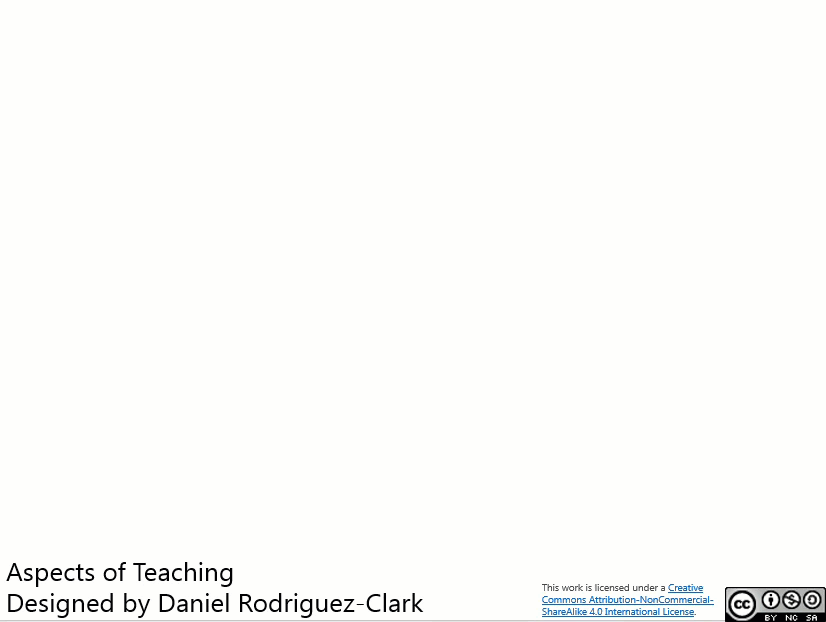|
Put yourself in these situations: A colleague is talking at lunchtime in the staffroom about having trouble with a particular student. They do the bare minimum, but won't do any extra even though they could do really well in the subject if they just applied themselves a little bit. After a day visiting your parents, your partner is upset about something your father said. This is not the first time, they have had a tumultuous relationship at best. You just want them to get along. You are a middle/senior leader, and an area of concern/improvement in your area of responsibility has been identified from some data. What is your default reaction to situations like these? Mine has always been to go into problem solving mode. Certainly as a Mathemacian, that is what I do: solve problems. But recently I have noticed that I do this in all areas of my life, both professional and personal. If I get involved in a problem, then I am aiming to solve that problem. I took stock of this position a couple of times over the last few years. The first time I really thought about it was when I started training as an instructional coach following the Impact Cycle by Jim Knight. I was fortunate enough to go to the Instructional Coaching Institute in 2019 to be trained by Jim himself, and it was am incredible experience, not only to be surrounded by 99 other people who were coaches, but to listen to Jim himself. There was so much to take away from that week. But one thing that really hit me was that a coach is not there to solve the teacher's problem, but rather to understand the problem and help the teacher solve their own problem (though not in a facilitative way assuming the teacher knows what to do, but in a constructive conversation as partners). Since then I have been fortunate enough to have many coaching conversations and have worked for an extended period with several teachers as their instructional coach. I feel that in these conversations I am actually quite good at not trying to solve the problem. But it seems to be mostly limited to the structure of a coaching conversation. In reading Kicking the Solution Habit recently, I was suddenly confronted with a behaviour I exhibit most of the time. I try to find solutions. In the post, Matthew Evans basically has one big message: before trying to find a solution to a problem, make sure you understand what the problem is. And this is the sticking point for many people, in my experience. It is quicker and easier to make your own interpretations of the problem and solve those, than to actually spend the time investigating the true causes of the problem and addressing those. The quick fix is easy in the moment (even if it doesn't last), whereas actually solving the problem takes a lot of time and energy to explore what the true problem is. So, whilst I find myself able to do this in the confines of a coaching conversation, it is the structure of that conversation that acts as my cue to behave that way. When in another situation, be it an impromptu chat with a colleague or a conversation with my wife about our children, I fall back on my problem solving ways, trying to fix the problem instead of understanding it first. One area where this has been very evident is in my role as lead for teaching and learning. Early on in my time in this role, I wanted to enact quick solutions: an inset on this topic, a collaborative professional development day. But as I have gained experience, reflected and gotten better at the job, I have realised that if you want to implement anything, you have to take it slow, not just to get buy in (though that is important), but to make sure you are actually addressing the real problem, and not some surface detail that is really just a symptom. I want to improve at this. I want to be better at uncovering the real problem, and listening intently to people before trying to solve the problem. But I have a ways to go. I need to change a lifetime habit, and that is difficult. I need to work out some cues for myself to put me in the right frame of mind. I know I can do it, I just have to transfer what I do in a coaching conversation to other situations. But that is difficult. It isn't a quick fix. I am making headway. I have spent time identifying what the real problem is (I like to problem solve) where in the past I would have put the blame for failed fixes on the other person (they clearly didn't do it right). I am making progress. But I need to keep analysing the problem. Are you a problem solver? Are you always looking for a solution, rather than trying yo understand the problem?
0 Comments
I have been working on what I call the Aspects of Teaching, which is designed to underpin our Instructional Coaching Programme. The purpose behind this is to give coaches and teachers some broad areas of what we do to talk about, but also split it up a little bit to direct conversations to the most important parts that teachers want to work on. Below is the Aspects of Teaching. It should start automatically, and takes about a minute to play through the whole animation. There is a static image version here. Hopefully it is fairly self explanatory, which is why I have produced it in an animation form. But by splitting what we do into the 4 big Aspects, and then focusing on a particular detail within one of these, I am hoping to help create useful conversations. For each Aspect there will be a set of strategies taken from various sources, including
|
Dan Rodriguez-Clark
I am a maths teacher looking to share good ideas for use in the classroom, with a current interest in integrating educational research into my practice. Categories
All
Archives
August 2021
|
|
Indices and Activities
|
Sister Sites
|
©2012-2023 Daniel Rodriguez-Clark
All rights reserved |

 RSS Feed
RSS Feed
